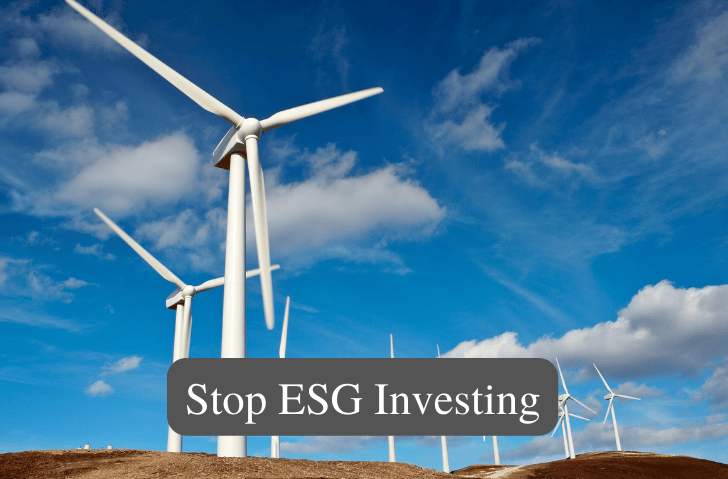If you are saving for retirement (or retired) it is in your best interest to get as much out of your investments in the stock market as possible. You should always eliminate political virtue signalling from your investment decision-making.
ESG stands for Environmental, Social and Governance. The strategy means investing in companies that score high on these factors as determined by a (usually biased) third-party company or group. The assumption is that the better a company’s ESG score is, the better their overall performance.
ESG investing sounds great. It also makes you feel good about the investments you make and should help you sleep better at night. But it may not be all that it seems, especially for investors who don’t fully understand what it is and how it works.
Here are some reasons you don’t want to invest this way:
- ESG investing is bad for investors because it reduces the range of investment opportunities to investments that are only screened for environmental, social and governance factors.
- ESG investing is bad for investors because it can create a false sense of security, making you think your money is being invested in morally pure companies. In reality, ESG companies are selected by a (usually biased) third-party company or group. As a result, ESG lacks the ability to tell right from wrong and when used in disguise, it can lead to harmful practices.
- ESG ratings do not provide details about the companies that are rated, which can lead investors to believe that an investment is great when it actually is not.
- Not all companies that want to appeal to socially responsible shareholders care about their customers, employees, or the environment.
- ESG investments will cost you significantly more in fees and may limit their ability to access specific investments.
- There is no evidence that you will have better (or any) returns.
When you’re investing, it’s easy to be swayed by a company’s social mission, or the strength of its culture. After all, you care about things like that too. We have nothing against socially responsible investing (or giving). But this shouldn’t come at the expense of good old-fashioned fundamentals, revenue, and earnings growth potential.
ESG is nothing but short-term thinking. If you want to invest with a cause then I would recommend that you invest in a globally diversified portfolio of low-cost index funds. Then overtime take your gains and give it to causes and charities you want to support.

